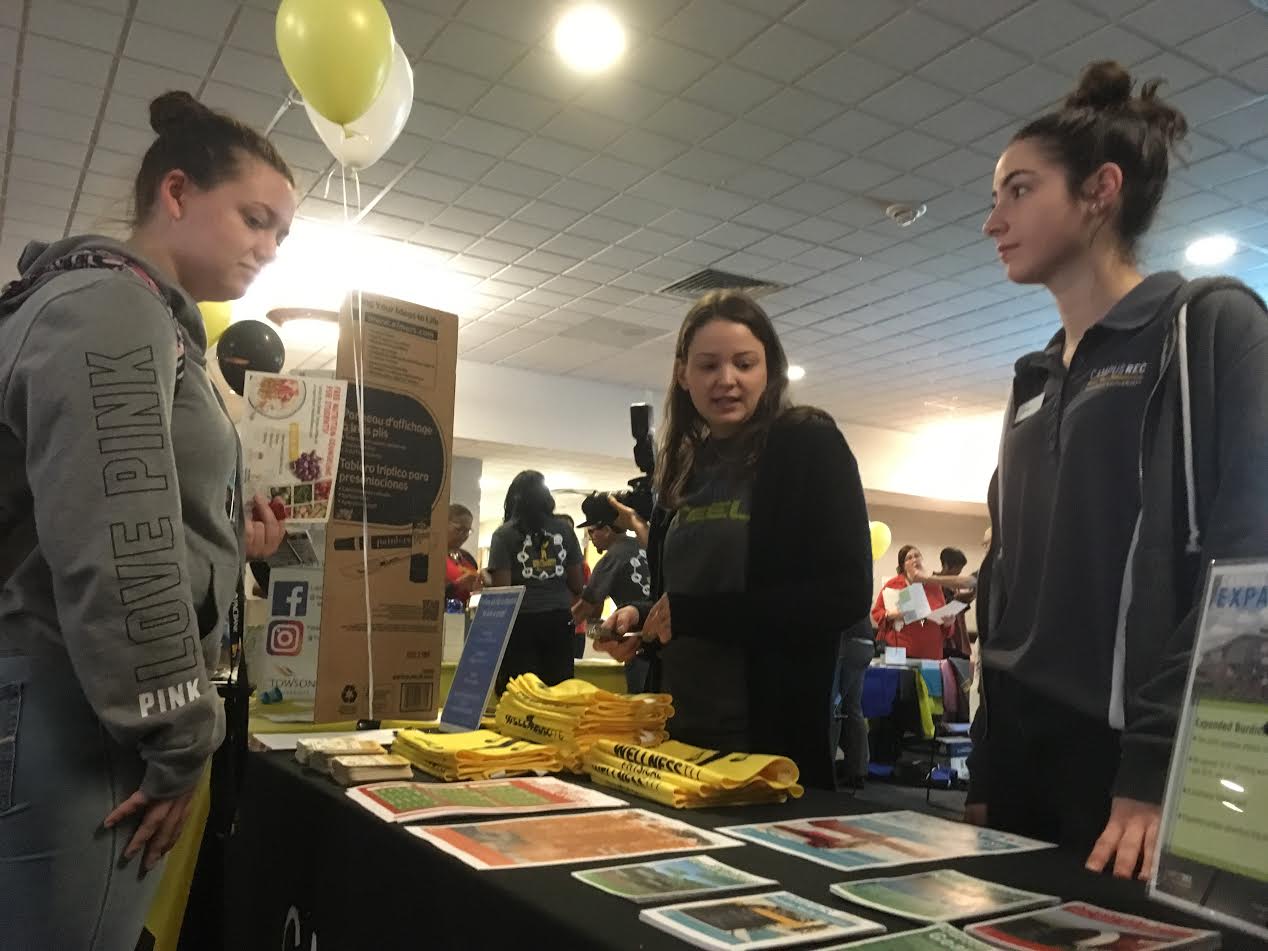
Towson promotes ways to improve student welfare
By: Mary-Ellen Davis, Staff Writer
Wellness isn’t just eating some broccoli and going to the gym. A person’s well being, instead of being based just on calories burned and hours slept, is actually based on eight dimensions: social, emotional, intellectual, spiritual, physical, occupational, environmental and financial well-being.
“There’s all these different ways to improve wellness,” Hanah Tanenholtz, a volunteer with the Healthy Campus Task Force, said. “[There are] so many different ways to increase your happiness on campus.”
Tanenholtz was stationed at the “social” table in the Union during last weeks kickoff event for the taskforce. Students could wander between tables, each about the different dimensions of wellness, at the kickoff April 5 in the University Union.
The Digital Detox Challenge is one way to increase your social wellbeing. The goal of the challenge is to get people off mobile devices, and instead encourage people to interact with one another. The challenge, which lasts for seven days, includes things like turning off push notifications, going a day without your phone, and cleaning up your social media accounts.
Allison Frey, a health educator on drugs and alcohol in the counseling center, talked about taking a minute for yourself. The table had small, one-minute sand timers to help you take a minute away from whatever your stressor is.
Frey also briefly talked about meditating to help improve your emotional wellbeing. At the counseling center, there is a meditation room that can be reserved for personal use, or students can attend guided meditation classes.
Each table also had something different that health advocates wanted students and staff to take away from the event. For Frey, that was letting people know where they can find the counseling center, as well as talk about the different services the center can provide students with.
Casey Cooper, a career counselor here at Towson, said that what she wanted students to take away from the event was for them to know that they are supported.
“Essentially, I think everybody here wants students to know — students and faculty and staff and everybody — to know that they’re supported, that we’re here to make sure they’re well,” Cooper said.
Cooper, who was set up at the occupational wellness table, said students can help one another’s well-being by checking in with friends to make sure they’re okay and that they know about the resources offered at/near Towson.
“If something’s wrong, you want to connect them to resources on or around campus, so that if they’re aware, they can make others aware,” she said.

